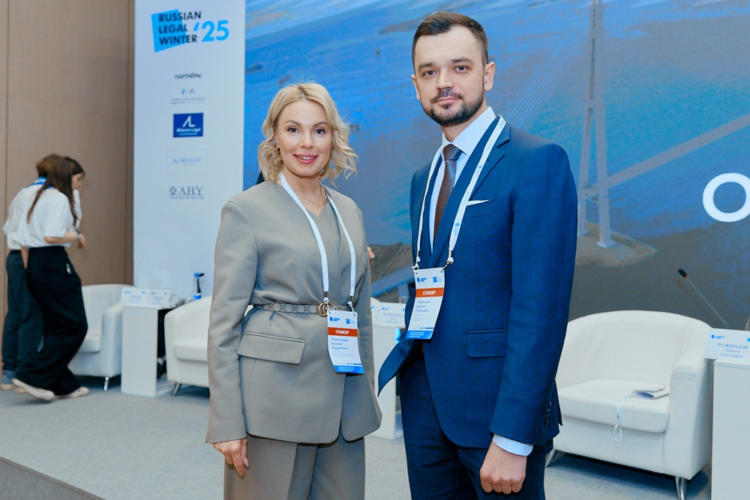Lawyers have proposed a way to protect businesses from unfounded claims by government agencies
Published: by .

In particular, the event's strategic partner, the Alliance Legal consulting group, highlighted the problem of the inconsistency of the judicial doctrine with the general principles of tax law as applied to foreign economic activity (FEA). As is known, since 2022, many companies have been forced to cooperate with legal entities that do not have a permanent establishment in Russia. For example, an importer, in order to import goods from abroad, entered into an agreement with an intermediary. The transaction took place, all customs duties and fees were paid upon crossing the border. And a few years after the tax audit, the buyer was charged an additional amount of income tax: suspicions arose that the intermediary was included in the chain only for the sake of tax optimization. The reason was allegedly a large trade margin.
– The legal classification of the payment has changed. On the one hand, it was recognized as an unacceptable expense for the Russian side, on the other – as passive income for the foreign side. This means that the profit tax must be paid by the tax agent in the territory of the Russian Federation. It would seem that the absurdity of the situation when the same base is taxed twice is obvious to everyone, but the case in which we are defending the interests of the business has been considered for the fourth year already, – says Ksenia Panteleeva, Deputy Managing Partner, Head of the Company's Regional Office in Yekaterinburg.
Moreover, this story can repeat itself with any importer. The legislation contains such principles as the economic justification of the tax, the inadmissibility of an unjustified deterioration in the taxpayer's position, the protection of legitimate expectations, etc. Unfortunately, judicial doctrines (the results of the generalization of judicial practice, which then serve as guidelines when considering such cases) in many ways do not coincide with them, and even contradict them, which increases the risks for entrepreneurs.
– In essence, when guided by the rule of law, the taxpayer does not always get the result he expects, which seriously complicates the planning of export and import supplies, – emphasizes Ksenia Panteleeva. – According to Article 45 of the Tax Code of the Russian Federation, any change in the legal classification of completed business transactions should have consequences in the form of judicial control. But this rule does not apply to companies in whose actions the tax authority assumes some kind of bad faith.
According to the expert, the conflict could be resolved by conciliation commissions, including tax authorities, tax consultants and business representatives. They exist in many countries, but Russia has no such experience yet, and the concept of inadmissibility of circumvention of the law has gradually turned into a presumption of guilt of the taxpayer. The legal community advocates that judicial practice should nevertheless develop taking into account the principles laid down in the Tax Code of the Russian Federation.
No less acute is the problem of distinguishing between relations that fall under the regulation of both civil and criminal law.
– According to the Judicial Department of the Supreme Court of the Russian Federation, the number of people convicted in 2021-2024 under Article 159 of the Criminal Code of the Russian Federation (fraud) increased by approximately 35 percent. Although in most cases the qualification of the act is not in doubt, there is an explanation from the plenum of the Supreme Court of the Russian Federation in 2017, nevertheless, in practice, it is sometimes difficult for security officials and judges to determine the type of offense, – notes Nikita Rozhentsov, lawyer, adviser to the criminal law and general practice of Alliance Legal.
He gave several striking examples. All cases were considered in 2022-2024 under Part 4 of Article 159 of the Criminal Code of the Russian Federation and concerned the provision of legal assistance to companies with state participation by hired consultants. Thus, one lawyer was sentenced to 7.5 years in prison for an excessively large fee, 332 million rubles, received from an enterprise that is part of the state space corporation, although his team helped the client avoid bankruptcy. Two other lawyers were sentenced to 5-6 years in prison: back in 2016, they entered into contracts for representation in arbitration, civil and criminal proceedings with the airline. According to investigators, the damage caused to it amounted to about 250 million rubles.
– The decision states that the amount of the fee does not correspond to the average market level, although in our country there is no state regulation of prices for legal services. The court considered that the amount paid was not comparable with the level of qualification of the performers – they did not have academic degrees. And in general, it is inappropriate to hire an outside lawyer for disputes that are not complex; such functions could be performed by in-house lawyers, – Nikita Rozhentsov lists the court's arguments. – It is interesting that the airline itself did not make any claims.
In its conclusion, the Federal Chamber of Advocates proposed to evaluate the facts from the point of view of the principles of freedom of contract and discretion, that is, the ability of subjects to freely exercise their rights within the framework of the law. Only the principal can determine the degree of complexity of the assignment, but judicial practice most often develops differently.
– We see that the courts' approaches to resolving the same issues are different. In my opinion, here we can talk not only about excessive criminalization of the sphere of services, but also about the inadmissibility of arbitrary interference in civil-legal relations, – believes Nikita Rozhentsov.
Comments